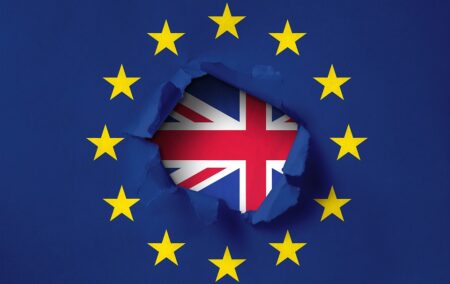Brexit is unedifying, unpleasant and unending.
There still seems no sign of an end to the Brexit crisis unfolding in the United Kingdom (UK). If everything had gone according to plan, the UK would have ceased to be a member of the European Union (EU) last month, but with no consensus being reached within the UK, this date has passed with no resolution and the UK remains a member of the EU. The date for the UK’s withdrawal from the EU has now been extended to 31 October. What this means is that the country will take part in the elections for the European parliament, which could provide something of a measure for the country’s political temperature.
A new party will be participating in the election, and given that its name is the Brexit Party, there is no confusion around its aims. It was formed earlier this year and is led by a member of the former United Kingdom Independence Party (UKIP) leader, Nigel Farage, who in many ways has been the face of Brexit. Farage left UKIP last year and sat as an independent in the European Parliament. A large number of UKIP Members of the European Parliament (MEP) have also defected from Ukip and now represent the Brexit Party in the European Parliament. The Brexit Party already has fourteen of the UK’s 73 seats in the European Parliament, all former UKIP representatives.
Polls also show the Brexit Party is likely to win the European elections in the UK next month. A recent poll showed that the Brexit Party would likely get 27% of the vote, followed by Labour (22%), the Conservatives (15%), and the Lib Dems with nine percent. UKIP would get seven percent, and another new political party, Change UK, would receive about six percent of the vote. If this poll proves to be relatively accurate the two main establishment parties of the UK (Labour and the Conservatives) would have received less than 40% of the vote between them.
Although the established parties do fare less well in elections to the European Parliament than ordinary British general elections, polls also show that the established parties (especially the Conservatives) could get a bloody nose at the next general election.
Latest polls have the Conservatives polling at around 30% with Labour in a band between 36 and 40%. If the result holds it is likely that the next Prime Minister of Britain could well be Jeremy Corbyn, the leader of the Labour Party (although he may well need a coalition to govern depending on the final results). It would also be the Conservatives’ worst result (in terms of the proportion of votes won) in 20 years, and see a second Conservative Prime Minister brought down by Brexit, as Theresa May would follow David Cameron in having to resign.
Brexit has caused a great amount of turmoil in Britain, and the country has likely not faced a crisis of this magnitude since the 1970s. The rise of the Brexit Party and others, at the expense of the more established parties continues the pattern seen in Western democracies, with voters increasingly becoming fed up with the mainstream parties.
Brexit is unlikely to be resolved any time soon, and surely David Cameron regrets every day that he called a referendum on this issue – a referendum he presumed would vote ‘remain’.
Marius Roodt is the Head of Campaigns of the Institute of Race Relations.
If you like what you have just read, become a Friend of the IRR if you aren’t already one by SMSing your name to 32823 or clicking here. Each SMS costs R1.’ Terms & Conditions Apply.

